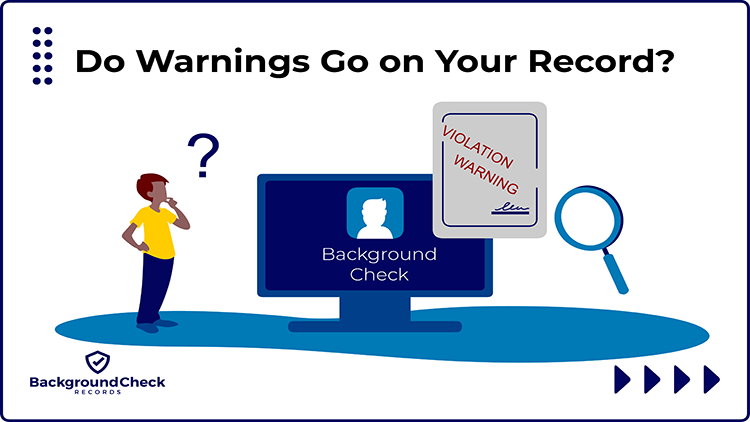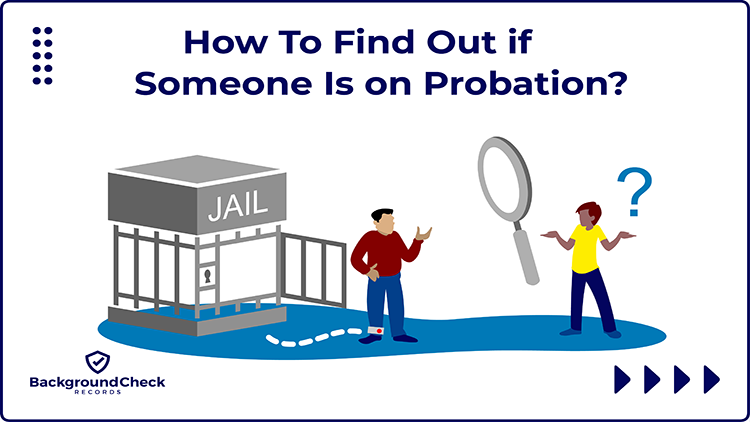We use cookies to ensure that we give you the best experience on our website. If you continue to use this site we will assume that you are happy with it.
How To Find Out if Someone Is in Police Custody (Online Free Trick)
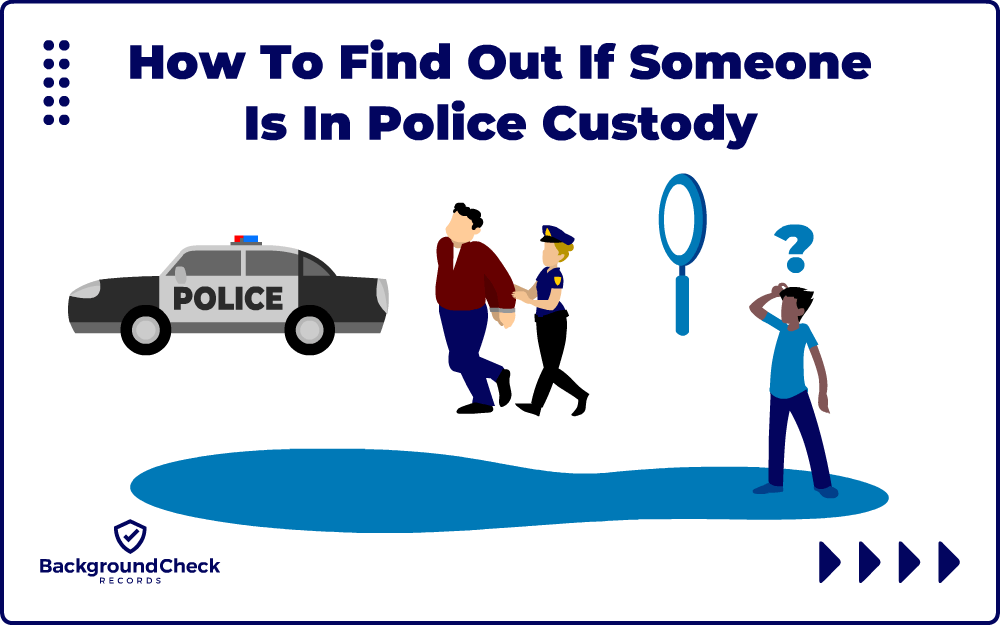
Table of Contents
Answering the question “who was arrested last night” can be done with a simple cost-free trick that teaches anyone how to find out if someone is in police supervision online free.
There are thousands of jails in the United States housing tens of thousands of individuals awaiting trial or bail on a daily basis so finding out who has just been arrested and is awaiting trial can be a difficult task if the searcher doesn’t know where to start.
Narrow Down The State, County, City & Jurisdiction Of Arrestee In Custody First
There are over 3100 county, city, and regional jails in the United States so it is crucial to narrow down the location where the arrest took place. It’s also important to note that not all jails are administered the same, and it may not always be possible to find out if someone is in police custody online.
Each state and municipality has its own set of laws, policies, and regulations regarding jails. Some cities do not have jails and rely on the surrounding county to hold arrestees. Some areas utilize regional jails that multiple agencies access and to make things more difficult, the number of jails in each state varies based on population and crime rates.
For a point of reference, the table below shows the number of jails in each state.
| State | Number of Jails | State | Number of Jails |
| Alabama | 132 | Montana | 37 |
| Alaska* | 15 | Nebraska | 63 |
| Arizona | 22 | Nevada | 20 |
| Arkansas | 75 | New Hampshire | 10 |
| California | 114 | New Jersey | 19 |
| Colorado | 61 | New Mexico | 33 |
| Connecticut* | 14 | New York | 62 |
| Delaware* | 4 | North Carolina | 97 |
| Florida | 87 | North Dakota | 24 |
| Georgia | 183 | Ohio | 108 |
| Hawaii* | 8 | Oklahoma | 93 |
| Idaho | 36 | Oregon | 36 |
| Illinois | 92 | Pennsylvania | 73 |
| Indiana | 92 | Rhode Island* | 5 |
| Iowa | 96 | South Carolina | 50 |
| Kansas | 97 | South Dakota | 26 |
| Kentucky | 84 | Tennessee | 112 |
| Louisiana | 111 | Texas | 252 |
| Maine | 13 | Utah | 27 |
| Maryland | 30 | Vermont* | 8 |
| Massachusetts | 19 | Virginia | 71 |
| Michigan | 88 | Washington | 59 |
| Minnesota | 82 | West Virginia | 11 |
| Mississippi | 89 | Wisconsin | 76 |
| Missouri | 117 | Wyoming | 231 |
These states have unified prison-jail systems so both those awaiting trial (recent arrests) and those serving sentences can be housed at the same facility. This makes knowing how to find out if someone is in police supervision a bit more difficult than simply searching a local jail website. Inmates are separated based on their status (pre-trial or post-sentencing) within the facility.1
How Do I Find Out If Someone Is In Police Custody Online (County Jails)
County jails, sometimes called parish jails, are usually administered by the local sheriff’s department. Each one sets its own policy regarding publicized inmate rosters, with more making these lists available to the public via online search tools each year. Those that do not have online search tools can be contacted via telephone to inquire about an inmate.
These online search tools can help locate individuals who have been arrested and are awaiting trial or bond, or those individuals who have been taken into custody for their own safety until they can be released to a responsible adult. For example, one can search the web for “Maricopa County inmate search” which will take them to the Maricopa County Sheriff’s inmate finder.
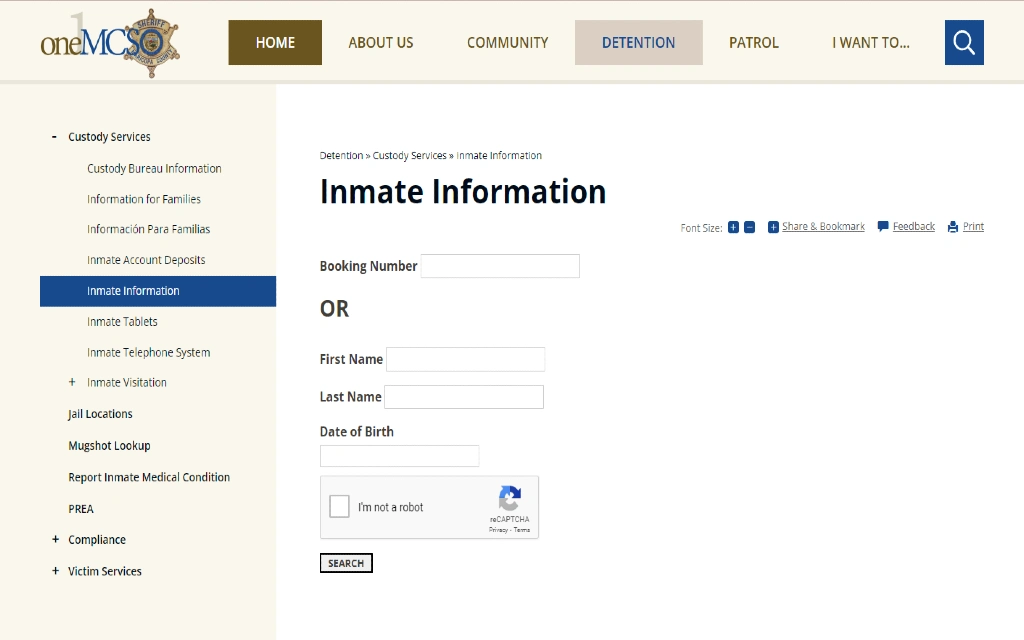
For example, individuals in North Carolina who are arrested for public intoxication can be held up to 24 hours or until released to a responsible adult.2 Each department sets its own online tool and decides what information will be included and each agency in the states differs in the amount of information made available.
A search of the local sheriff’s department site may or may not include a current booking/arrest list or inmate lists. Also, lists may not be updated daily, so information may be incorrect at the time of the search.
Most county detention center sites require at least a last name to begin the search. The links are often titled “Inmate Roster” or “Jail Roster.” Some sites will display the entire inmate list in alphabetical order, so searchers must scroll through the list to find the person’s information.
When unsure about the exact county of arrest, VINELink is a good starting point since forty-six states currently partner with the platform. Be aware, however, that not all counties in a state or area may participate in the program even if the state department of corrections does.3
How To Check If Someone Was Arrested Or In Police Custody for Free (City Jails)
Much like county jails, city jails operate in the same manner. The biggest difference is the authorized agency in charge of incarceration. City jails are funded and operated by the municipality where they are located.
An example of a city search can be found using the New York City system. Currently, Rikers Island inmate searches can be conducted online through the NYC Department of Corrections website. Searches can be done by booking or case number, or by the arrestee’s first and last name.
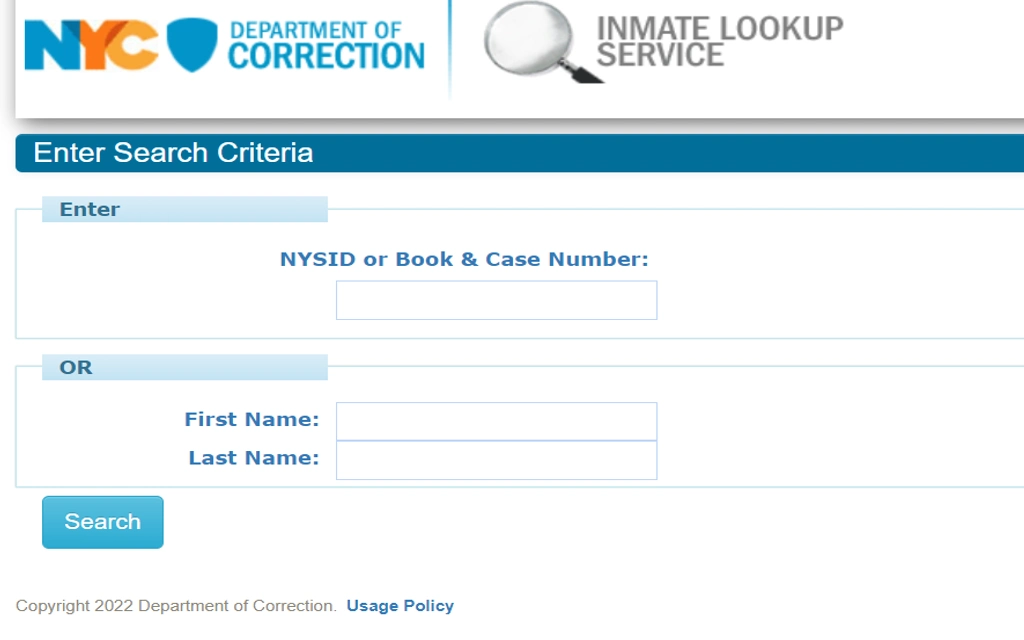
New York City has plans to build detention facilities in Manhattan, Bronx, Queens, and Brooklyn and close the notorious Rikers Island Facility. Links to the new facilities will go online as they are opened.4
City jails are run by the city police department or the city council, not the county sheriff’s office. Most have some kind of online search tool or list a phone number that can be called to make inmate inquiries. Simply search “[City Name] + inmate search” to see who is in local police custody in a local jail.
For those who are unsure of the city of arrests or do not have this information, they can find out if someone is in police supervision or learn about recent arrests by contacting their local law enforcement agency or checking VINELink.
Police Custody Search For Regional Jails
Regional jails are similar to county and city jails in operation. The biggest difference is the size and scope of regional jails. Municipal police departments partner to build and operate regional jails to house individuals from multiple areas. Regional jails are beneficial for smaller counties/cities that may not have budgeting capabilities to build detention facilities in the city or town.
Searches of regional jails are similar to city and county jails. The first step is knowing the location or region the arrest occurred. Municipal police departments that utilize the regional facility will often have a link to the facility page on their websites.
Regional jails such as Ohio’s Tri-County Regional Jail and West Virginia’s West Virginia Regional Jail and Correctional are examples of a central detention facilities used by multiple agencies. Regional jails are typically larger in size and scope than county or city jails, and they may also house prisoners serving short sentences or those stepping down prior to release dates.
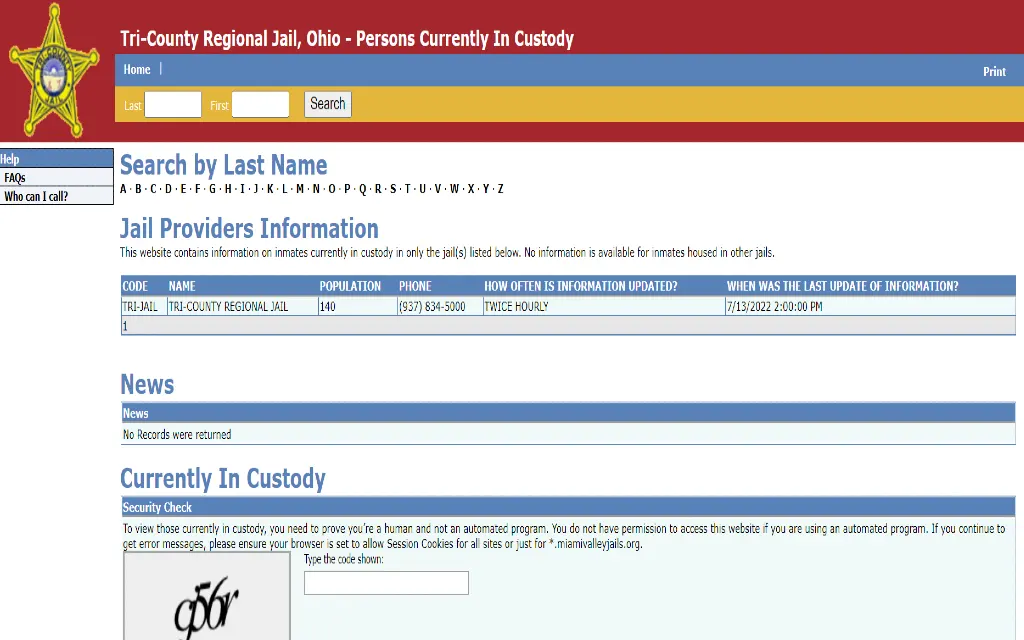
In addition to online tools on government websites, many local law enforcement agencies make inmate rosters available on social media platforms such as Facebook. This is either via a social media post or a hyperlink to the search tool.
Individuals being booked may not immediately show up in the search tools because of where they are in booking or processing. Additionally, not every department updates rosters at the same rate so information may be slightly outdated. Some sites will also only show those currently incarcerated, so there may be other avenues that must be taken to find out if someone has been in jail and subsequently released. If you’ve successfully located someone in police custody and they violate their probation terms or if there’s another concern, you can also find out how to locate their probation officer to report the issue.
How To Find Out if Someone Is in Police Supervision: Seek Professional Help (Bail Bondsman, Lawyer, or Attorney)
An effective, but sometimes expensive, way to locate an inmate is to hire an attorney or bail bondsman. An attorney or bail bondsman may be able to locate an inmate much more quickly than the general public. Attorneys and bondsmen also may have access to databases that are not accessible to the public.
Another benefit of using an attorney or bondsman for the inmate search is the ability to get legal counsel for the accused quickly, or post bond/bail in an expedited manner by working closely with local magistrates or courts regarding the release.
Special Exceptions
While there are a number of online search tools by various agencies and departments when determining how to find out if someone is in police supervision, there are some exceptions.
Arrests by state or federal law enforcement agencies may not show up on county, city, or regional jail rosters unless those state and federal agencies have detention beds in the local jails. State and federal agencies may have their own portals for arrests/detainees.
For example, immigration arrest searches can be made online using the individual’s biometric information or alien identification number through the ICE Online Detainee Locator System.
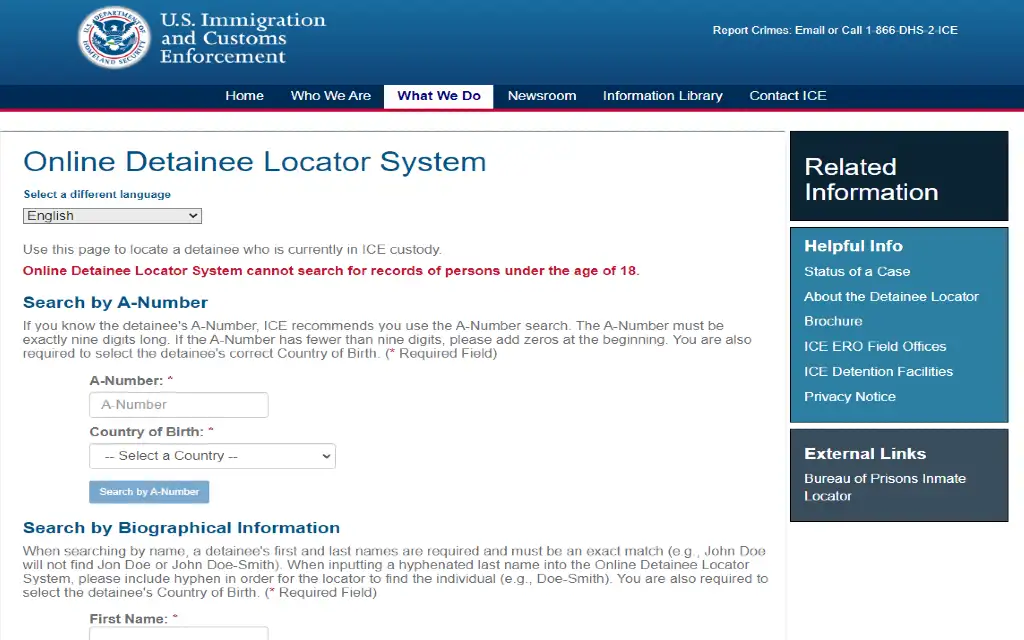
US Marshal arrestees can be housed in federal, state, local, or private detention facilities. How to find out if someone is custody of police following a US Marshal arrest requires knowing the geographic area the arrest was made.5
US Marshals will also execute a writ of habeas corpus when directed by the court to produce an individual or provide information on an inmate’s whereabouts (typically when state inmates must appear before a federal judge, appearance is guaranteed through issuance and execution of the writ).6
Also, juvenile detention rosters are not available to the public since they can only be disclosed under special circumstances prescribed by law or pursuant to a court order. To locate a juvenile offender, the person conducting the search would need to hire an attorney.
Regardless of the case or exceptions, there are several ways to learn how to find out if someone is in police supervision in the United States, such as using free online tools to check law enforcement databases for apprehensions.
References
1 2019 National Averages. (n.d.). National Institute of Corrections. Retrieved July 9, 2022, from <https://nicic.gov/state-statistics/2019>
2 (n.d.). GS 122c-303 Page 1 § 122C-303. Use of jail for care for intoxicated individual. In addition to the actions authorized by GS. Retrieved July 9, 2022, from <https://www.ncleg.gov/EnactedLegislation/Statutes/PDF/BySection/Chapter_122C/GS_122C-303.pdf>
3 (n.d.). VINELink Frequently Asked Questions. Retrieved July 9, 2022, from <https://www.wvarj.org/DocumentCenter/View/83/VINE-Link-FAQ-PDF>
4 Gelinas, N. (2020, May 13). Reimagining Rikers Island: A Better Alternative to NYC’s Four-Borough Jail Plan. Manhattan Institute. Retrieved July 9, 2022, from <https://www.manhattan-institute.org/rebuilding-rikers-island>
5 US Marshals Service Defendants in Custody and Prisoner Management, Defendant and Prisoner Custody and Detention. (n.d.). U.S. Marshals Service. Retrieved July 9, 2022, from <https://www.usmarshals.gov/prisoner/detention.htm>
6 US Marshals Service, Service of Process, Writ of Habeas Corpus. (n.d.). U.S. Marshals Service. Retrieved July 9, 2022, from <https://www.usmarshals.gov/process/habeas.htm>

